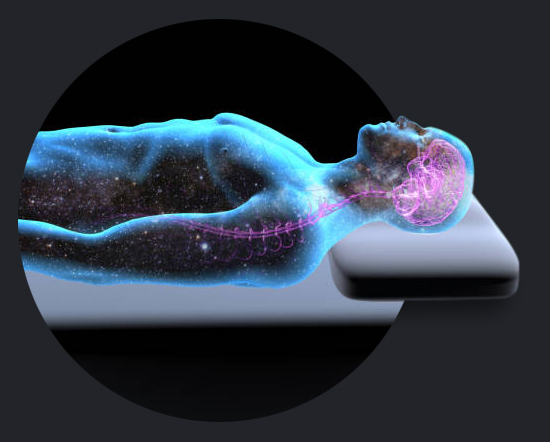As part of our Mindful Growth Series aimed at supporting FISV founders and their leadership teams, last week we partnered with Walking on Earth to run a workshop on Mastering Sleep to Build Resilience. Our moderator was Dr Jason Ellis, a Professor of Sleep Science and author of The Insomnia Cure.
Insomnia is the most cited health complaint in the world, above pain, anxiety, depression and other symptoms. As founders, leaders and challengers, it can seem indulgent to switch off and to prioritise rest. During our workshop Dr Ellis shared some meaningful reasons to tweak our bedtime routines and build an enhanced sleep routine without sacrificing time.

The Importance of Sleep
When we sleep, our bodies use energy to regulate our endocrine system, manage illnesses and regulate our glucose and hormone levels. Sleep provides a buffer to physical health issues as well as repairing braincells that optimise our memory capacity and emotional health.
Research shows that managers who don’t get the right level of sleep take it out on their teams, becoming the ultimate engagement turn-off. They’re more likely to give harsher feedback or provide less support towards meeting deadlines and completing objectives. This pushes their people away, reducing trust and team morale, which ultimately ruins productivity and motivation.
7-9hrs
In 2014 the National Sleep Foundation provided its first guidelines to suggest that adults need between 7hrs-9hrs sleep per night but Dr Ellis added that quality is even more important than quantity.
$40bn
A RAND Europe report estimated that sleep deprivation costs the UK economy £40bn.
Constructive Worry Time
If you struggle to fall asleep when you go to bed, focus on your pre-sleep routine. Allow for Constructive Worry Time to reduce insomnia:
-
List
Write down a list of all your thoughts and worries around 1 hour 30 minutes before you get into bed.
-
Planning
Write down what you have on your agenda for the following day and everything you have in place to handle the day ahead.
-
Distraction
Once in bed and trying to sleep, use strategies that are all consuming but non-emotive - count backwards from 1,000 in 7s, or use word association games (e.g. naming cities), so that you overload your mind to help it ‘shut down’.
If you wake in the night and struggle to get back to sleep, consider your sugar and alcohol intake!

Lucid Dreaming
A lucid dream is one in which dreamers, while sleeping, are aware they are dreaming. Lucid dreaming typically occurs during rapid eye movement sleep (REM) and some people are able to manipulate the dream itself.
The benefits of lucid dreaming are akin to mindfulness with some people even training themselves to master the technique through practices like mnemonic induction where people will tell themselves, just before going to bed, that they will notice they are dreaming so as to “program” themselves to achieve in-dream lucidity.

Sleep Tech
While there is a growing market for tech gadgets design to monitor sleep patterns, tech often makes judgements without a comprehensive overview of the problem.
Awareness of how we are sleeping is a good starting point but doesn’t tackle the underlying issues or improve sleep efficiency (time in bed to sleep ratio). In fact, over analysing patterns can be detrimental to achieving better outcomes.

Getting Sleep Support
Getting help is very country specific and in most countries the practice of sleep science is poorly regulated. In the UK, GPs offer free access to online sleep therapy whereas in the US, sleep is not yet recognised as a critical care topic and patients are required to self-refer.
Ultimately though, Dr Ellis told us that sleep is a highly corrective system, a lot of the time, if you leave it alone, it will correct itself.



